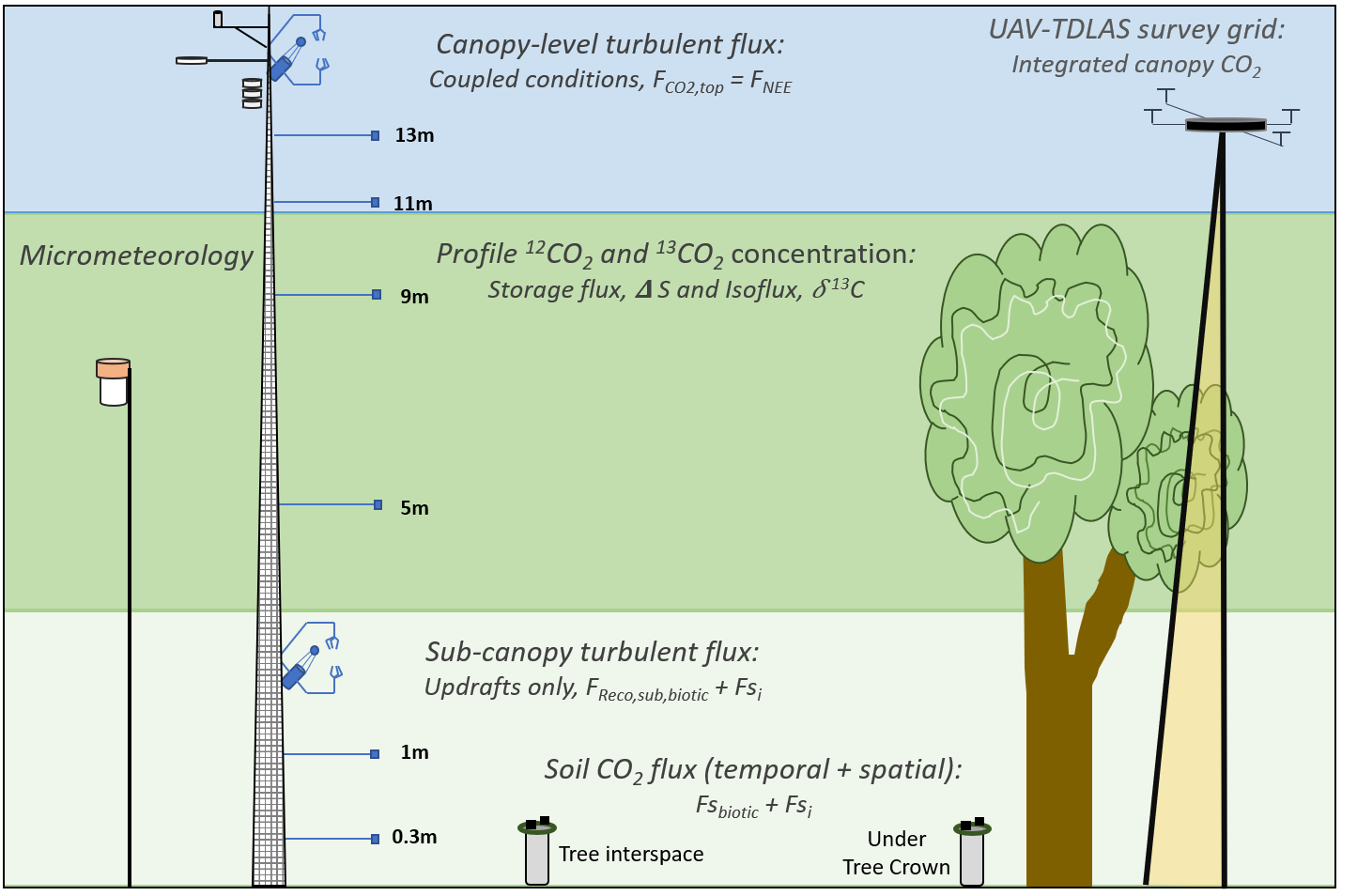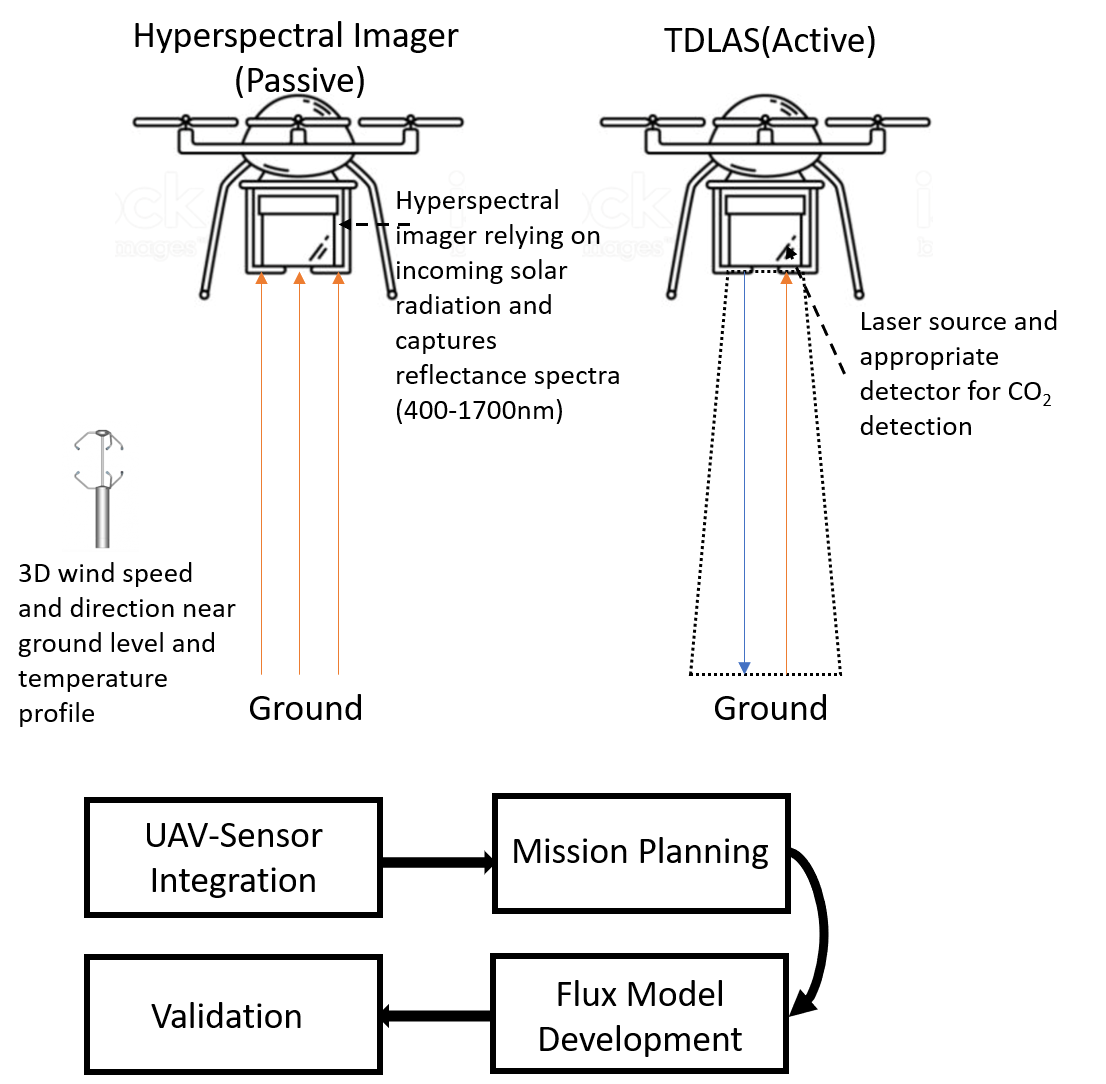Introduction
Arid lands cover more than 40% of the terrestrial land surface and host more than two billion people. To produce more food and support a growing population, intensive irrigation is being utilized worldwide to convert arid lands to agricultural fields. Intensive irrigation of arid lands causes several problems, including high water loss through evaporation, salt accumulation, and the formation of calcite mineral deposits, which can clog soil pores and change water-infiltration patterns. This project is trying to understand if and how the formation of these calcite minerals is coupled with the release of carbon dioxide (CO2) that could alter regional and global carbon balances.
The overarching goal of this project is to advance our fundamental understanding of the release of calcite-derived CO2 from arid agricultural soils using an irrigated pecan orchard in the El Paso region along the Rio Grande valley as a test site. To achieve this goal, we will quantify the emission of calcite-derived CO2 from their pecan orchard test site using a suite of measurement tools, including portable CO2 isotope analyzers, eddy covariance towers, and remote sensing systems mounted on an unmanned aerial vehicle.
The successful completion of this project will benefit society through the collection of new data and the development of new fundamental knowledge on how much abiotic CO2 is released to the atmosphere when arid lands are converted to irrigated agricultural fields. Further benefits to society will be achieved through student education and training and public outreach, including mentoring four graduate students (2 Ph.D. and 2 MS), and 3 undergraduate students at UTEP, and a postdoctoral scholar at AgriLife.

Schematic of point-based gas-flux measurements within the pecan orchard. Measurements will include turbulent fluxes above and within the canopy, concentration profile gradients of CO2 and d13C, soil CO2 fluxes, and auxiliary biometeorological variables.

Schematic of active and passive aerial remote sensing proposed and the key steps to assess the CO2 flux.
More Information
Publications and presentations coming soon.
Press Coverage
Support


Collaborators
UT El Paso:
Lixin Jin: https://expertise.utep.edu/node/26203
Marguerite Mauritz: https://expertise.utep.edu/profiles/memauritz
TA&M AgriLife:
Girisha Ganjegunte: https://elpaso.tamu.edu/research-project/water-resources-and-salinity-management-research-program/
Copyright © Saurav Kumar 2023. Last updated: 2023-09-09 10. Built using ReserachSiteCreator (comming soon on GitHub)